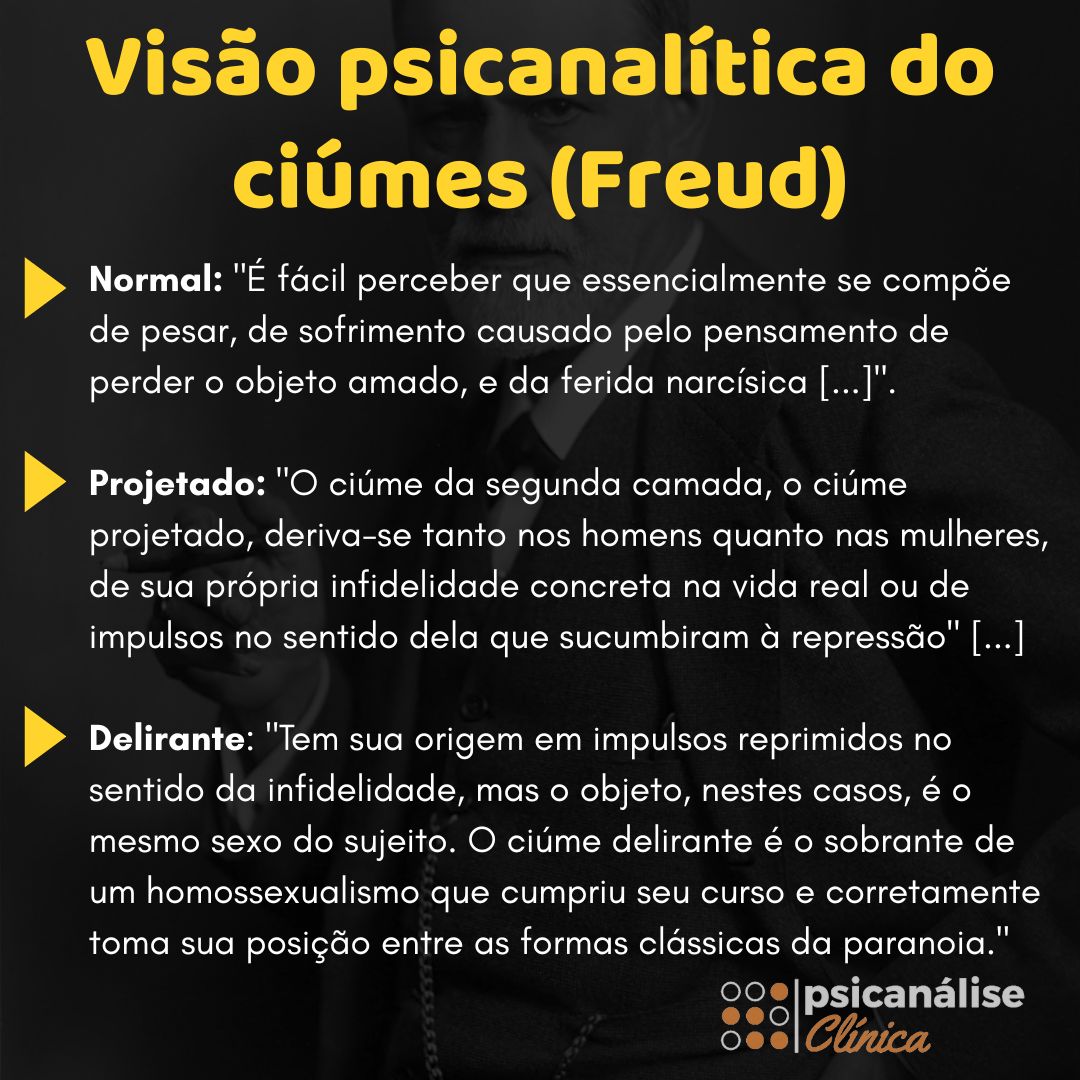Table of contents
Jealousy is an innate feeling in human beings, hardly anyone will go through life without feeling jealous, such as of friends, family members, and especially of the person with whom they are in a loving relationship. However, this feeling can even become pathological So, we've separated some tips for you to know how not to feel jealous in this proportion.
Furthermore, we will show the difference between this natural jealousy, inherent to human relationships, and the pathological, or unhealthy jealousy, which, in a certain way, becomes a feeling of possession over the other, damaging the relationship, especially because of the jealousy's lack of emotional control.
In other words, the relationship, which was supposed to be pleasant, becomes conflictive, due to the insecurity and anxiety of the other, who ends up acting in a totally uncontrolled way, letting himself be dominated by jealousy, leading to irrational behavior, which can even lead to tragic results.
Why do people feel jealousy?
Initially, jealousy is initiated as an indication that something is not going well with the person in a relationship, be it a friend, family member, or romantic partner. However, this problem may not be real This is only present in the jealous person's imagination.
In this way, one does not know how not to feel jealous The jealous person is extremely insecure, so he ends up acting as if he were in a competition to have the affection and attention of the other.
In this sense, the main reasons for feeling jealousy are related to:
- low self-esteem;
- insecurity;
- affective losses, especially in childhood.
- difficulty in socialization;
- culture and education about relationships.
Main differences between normal jealousy and unhealthy jealousy
We have all felt jealousy, this is normal, because it is a feeling that shows insecurity related to the fear of losing someone who feels affection. But the secret is in the balance, because if jealousy is part of the routine of a relationship, causing intense fights and abusive behavior s, we are facing an unhealthy jealousy.
In this context are people who feel insecure in any situation, living with the constant fear of being abandoned. And so, they end up living in the midst of excessive jealousy, leading to emotional lack of control.
Those with unhealthy jealousy cannot deal with the possibility, even imaginary, of losing the other, and even more, this feeling is accompanied, in its majority, by others, such as anger, anxiety, fear, sadness, and despair.
In short, normal jealousy is that which is related to affection, aimed at preserving the relationship, and is generally not a cause for conflict. However, jealousy becomes excessive, and even unhealthy, when it is exaggerated in relation to its cause, leaving the jealousy maker emotionally uncontrolled, even to the point of having delusional thoughts.
Tips on how not to feel jealous
For example, do you feel jealous when your partner interacts with other people, or when he or she has social engagements at work?
These are situations that happen when a person cannot control his feelings and emotions, resulting in conflicts that bring suffering to both.
So, we have separated here 5 tips that will help you have healthy and pleasurable relationships After all, living in society is vital, so we must learn to deal with our internal conflicts in order to better relate to each other.
1. know what the causes of jealousy are
There can be many causes of this feeling, and they need to be identified in order to know how to not feel jealous. Among the main causes are traumas from previous relationships There are many reasons for this, including feelings of abandonment, negative childhood experiences, lack of affection during one's life, and neediness.
2. improve your self-esteem and self-love
Raising your self-esteem, exercising self-love is paramount to feeling confident. By valuing yourself, above all, you will know how not to feel jealous to the extent that does not affect your personal and interpersonal relationships.
In that sense, you will have a healthy relationship, knowing balance your emotions, paying attention to what really matters After all, with self-love you will feel self-confident, not letting situations destabilize your relationships.
See_also: Mental Block: when the mind cannot bear painI want information to enroll in the Psychoanalysis Course .
Read Also: Jealousy: what is it, how not to be jealous?
3. good communication
It is essential that from the very beginning of a relationship all intentions are stated in an objective manner. Also, in order to establish a relationship, such as a loving one or one of friendship, it is important to have an easy conversation, to feel pleasure in talking about several subjects. This will certainly strengthen your bonds.
A good communication will help you not to feel jealous You will always feel comfortable to explain how you feel and the causes of the jealousy, so that misunderstandings don't arise because of trivial situations, which might even be unknown to the other person.
4. live the now
Often, through frequent thoughts about past traumatic experiences, the person ends up conditioning their current relationship to avoid suffering again.
The intense fear of losing the other, comparing them to the past, or even to the former partner, results in a person who lives stuck in the past. In this way, keeping your thoughts in the present, living in the now, will make for happier and more pleasurable relationships.
See_also: To dream of dead or dead people
5. do Therapy
Therapy can be a great ally to help you control your feelings and behavior. In therapy sessions the specialized professional will find ways to raise your self-esteem, working on your self-knowledge .
Even in matters related to your unconscious mind, which lead you to unreasonable and irrational behavior.
In addition, you can also opt for couple therapy, where the conflicting issues will be addressed from both points of view. Then, the professional will seek to establish a balance in the relationship, understanding the factors that cause the dysfunctional behaviors.
After all, we know that excessive jealousy by one of the parties causes both of them to suffer. On the one hand, the jealous person lives in function of what the other is doing, because of the anxiety caused by thoughts of loss. On the other hand, the jealous person feels controlled, avoiding daily situations that are common to them, just so that the other does not suffer.
Psychoanalytic view of jealousy

Psychoanalysis explains what happens in our unconscious mind when we are jealous. Sigmund Freud, the Father of Psychoanalysis, in his 1922 text "On Some Neurotic Mechanisms in Jealousy, Paranoia, and Homosexuality" explains that there are three kinds of jealousy :
- Normal :
It is easy to see that it is essentially composed of grief, of suffering caused by the thought of losing the beloved object, and of the narcissistic wound [...] (Freud)
I want information to enroll in the Psychoanalysis Course .
Therefore, for Freud, normal jealousy is the one related to the fear of losing the object he loves. This involves more the self-love of the person, who does not admit the possibility of being in second place. He always looks for the well-being he feels by being for the person, that is, it is a self-interest, for his own good.
- Designed :
The second layer jealousy, projected jealousy, derives in both men and women from their own concrete infidelity in real life or from impulses towards it that have succumbed to repression [...] (Freud)
In other words, projected jealousy is that in which you put under the other what is actually in you. In other words, if we have desires to relate to other people, even if unconsciously, you believe that the other person may have the same desires.
- Delirious:
It has its origin in repressed impulses towards infidelity, but the object in these cases is the same sex as the subject. Delusional jealousy is the leftover of a homosexualism that has run its course and correctly takes its position among the classical forms of paranoia. (Freud)
Thus, delusional jealousy is presented by Freud in relation to paranoia, where the man feels persecuted by a person of the same sex, originating from repressed desires related to infidelity.
However, in this case, it refers to homosexuality, where the man believes that the woman has an interest in the other when, in fact, the interest comes from the man himself." I I don't love him, it's she who loves him" (Freud).
Whatever the type of jealousy, one can conclude that it can lead to irrational and unreasonable behavior, causing suffering for both in a relationship So, if you want to know more about how not to feel jealous Thus, we invite you to get to know our Training Course in Clinical Psychoanalysis, among the benefits of the course are:
- Enhancing Self-Knowledge: The experience of psychoanalysis is able to provide the student and patient/client with insights into themselves that would be virtually impossible to obtain on their own;
- Improves interpersonal relationships: Understanding how the mind works can lead to better relationships with family and work members. The course is a tool that helps the student to understand other people's thoughts, feelings, emotions, pains, desires, and motivations.
Finally, if you liked this article and we helped you understand more about how not to feel jealousy, like and share it on your social networks. This will encourage us to continue producing excellent content.
